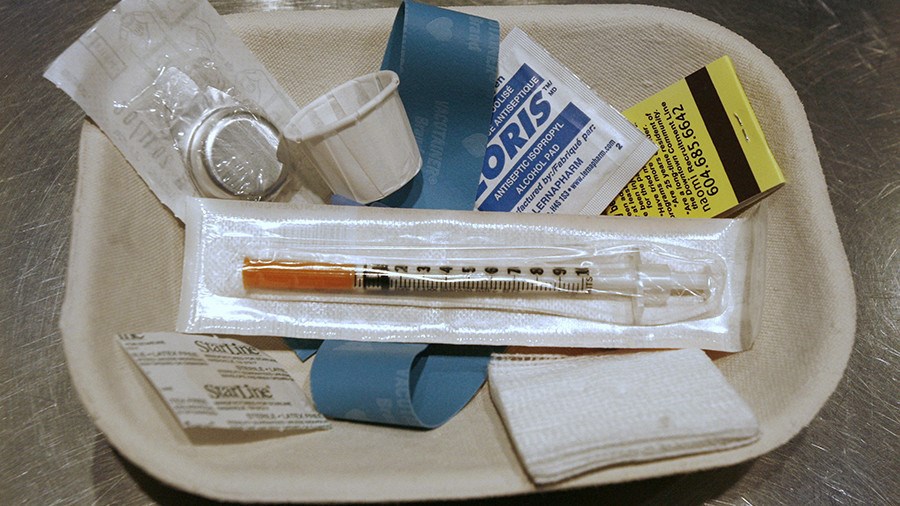By Kayla Aelick BSW, RSW
There is a need for education surrounding supervised consumption sites in Sudbury.
The opioid crisis in Sudbury is not new. Sudbury has long been a hub for drug traffic and use. Harm reduction is a method of addressing substance use using compassion and without requiring abstinence.
Harm reduction models are becoming increasingly more popular in Canada. The efficacy of harm reduction approaches have been researched and the results are now showing it to be a viable option for substance use disorders. For many years, harm reduction methods have been used with nicotine addiction.
There are many options for individuals who want to quit smoking such as using nicotine patches, gum, or e-cigarettes (among other methods) to help people wean themselves off of cigarettes. So why is it, then, that harm reduction approaches are celebrated for those with nicotine addictions but are debated with controversy for those with alcohol or drug dependency.
I have worked within a harm reduction model for alcohol dependency. I have been witness to the benefits of providing a safe space for individuals to support their recovery. More than providing “alcohol to alcoholics” or “drugs to drug addicts” harm reduction approaches are grounded in compassion and non-judgment.
People don’t just fall into addiction. It is a complicated disease with many contributing socioeconomic factors. If societal structures are part of the reason that people fall into addiction, isn’t it our duty as a society to help lift them back up.
Supervised consumption sites are a topic of debate in the Sudbury community. This is a service that provides individuals using illegal drugs access to peer support and medical professionals.
Supervised consumption sites do not encourage the use of drugs, but rather provide compassion and safety for those who are using drugs.
A common statistic used to support supervised consumption sites states that they reduce stress on emergency and medical responses. I challenge this reasoning because I do not believe compassion for another human life should be based on financial and social strain for a community.
STOP Society in Sudbury is doing an amazing job at being a bridge for individuals before a supervised consumption site can be developed. This begs the question: why is there a need for STOP Society at all?
If drug use in our community is so rampant and is on the verge of becoming an epidemic, then why is it up to caring community members to provide front line support? There are countless other communities in Canada that have supervised consumption sites and can provide proof of efficacy. While I commend Sudbury for conducting research to implement a supervised consumption site, I worry about the time it will take to complete the study. Then there is also the detrimental impact in community if the proposal is rejected.
There is a common misconception that by creating services to assist individuals who use illegal substance there will be an increase in illegal substance use. This is a false belief. The opposite is actually true.
A study out of Ottawa found that by increasing police response to drug use, the intervention did not impact statistics. However, when harm reduction methods were implemented there was a positive change in outcomes for illegal drug users. It is in the opinion of this writer that the backlash against supervised consumption sites points to community ignorance and lack of education.
There was a community survey circulated in Sudbury in July of 2019 to gather feedback about a permanent supervised usage site. This is a great strategy to gather public opinion. However, there was not a lot of awareness building done around the efficacy of supervised consumption sites and education to dispel myths or common misconceptions.
Furthermore, the opinion surveys were completed online. This implies that public opinions will be gathered from individuals who have access to a computer and Internet, and are able to read and understand how to use the online survey.
These methods might marginalize and silence the individuals who are directly affected by a supervised consumption site. From a privileged point of view, drug use might not be apparent in Sudbury.
Supervised consumption sites provide more than a medically safe space. With proper funding and support a supervised consumption site should provide access to housing supports, counselling and addiction supports.
It should be a place where people come to gather where they can feel validated and heard. STOP Society has already proven a need for harm reduction strategies implemented with low-barrier access.
I hope that the Sudbury community will continue to become educated regarding supervised consumption sites and support compassion and access to health care for all.
Kayla Aelick, BSW, RSW, is a Masters of Social Work student at Renison University College at the University of Waterloo.
